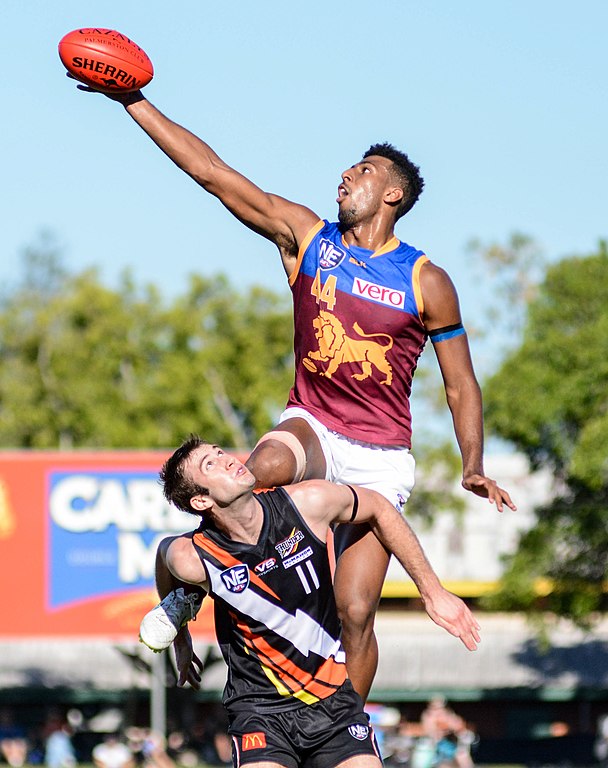 |
| Flickerd [CC BY-SA 4.0] |
My vision is clouded, of course, and explaining the history of my relationship with football will help explain why I raise an eyebrow when Jabiz starts talking passionately about the latest game results.
In both the US where Jabiz grew up, and Australia where my values were formed, football, in its different codes, is god. Almost literally I suspect. For many young boys in our cultures, the Saturday afternoon ritual of sitting with Dad and watching the game is an induction into the divine, a process of hero worship where the gods perform marvels and set the standards to which we aspire.
My childhood relationship with football was a little different. I grew up in a little country town where my father was the only doctor. Saturday mornings he did his morning clinic and in the afternoon we would be out in the garden, mowing the lawn, running around, playing with the dog.
Until, usually just on dinner time, the phone would ring. While we were sharing some rare family time with Dad, the rest of the town was at an Australian rules football match watching the visiting team do battle with the locals. As is required in Australian rules football, after a series of carefully choreographed interactions, one of the players would break the arm of another. The traditional first aid was to ply with alcohol, massage the ego, and then, when an appropriate amount of time had elapsed for both elements to take full effect, ring the doctor. Family dinner was inevitably interrupted by a drunk footballer who thought he was god supported by a tipsy coach who knew he was. My father would return home to a cold dinner and tell us in colourful Australian colloquialisms about his view of football.
It is through this clouded lens that I look at football. On Mondays at Primary School, I would listen to friends idolising a local farmer who had kicked a winning goal and wonder why this person deserved more respect than my father who had put his arm in a cast and missed dinner. Or why, when the nightly news came on, politics and war and humanity at large got less airplay that the football results and updates on the football tribunal and its decisions about which players should miss how many matches for hitting each other.
When I grew up and became a teacher, I found myself unable to converse with 50% of the staff for 50% of the year as normally decent, articulate human beings reverted to childhood tropes, congregating in their football tribes and throwing provocations at their foes. I once alienated half of a Grade 8 class by writing on the board that "football is the rubbish tip into which we pour our social intelligence".
My history with football hasn't been pretty. With age, I have mellowed a bit. I admire the work that the Australian Football League has done to actively address racism. The AFL seems uniquely culturally positioned to challenge racism and other cultural illnesses and it is to their credit that they have begun to do so. The latent aggression in football still worries me but maybe this stylised conflict acts as a social catharsis and is protective against other forms of violence. Maybe.
I don't hate football, but I haven't yet found in it enough good to warrant the time and effort needed to read its stories. And if I want melodrama, politics is scripting better episodes.